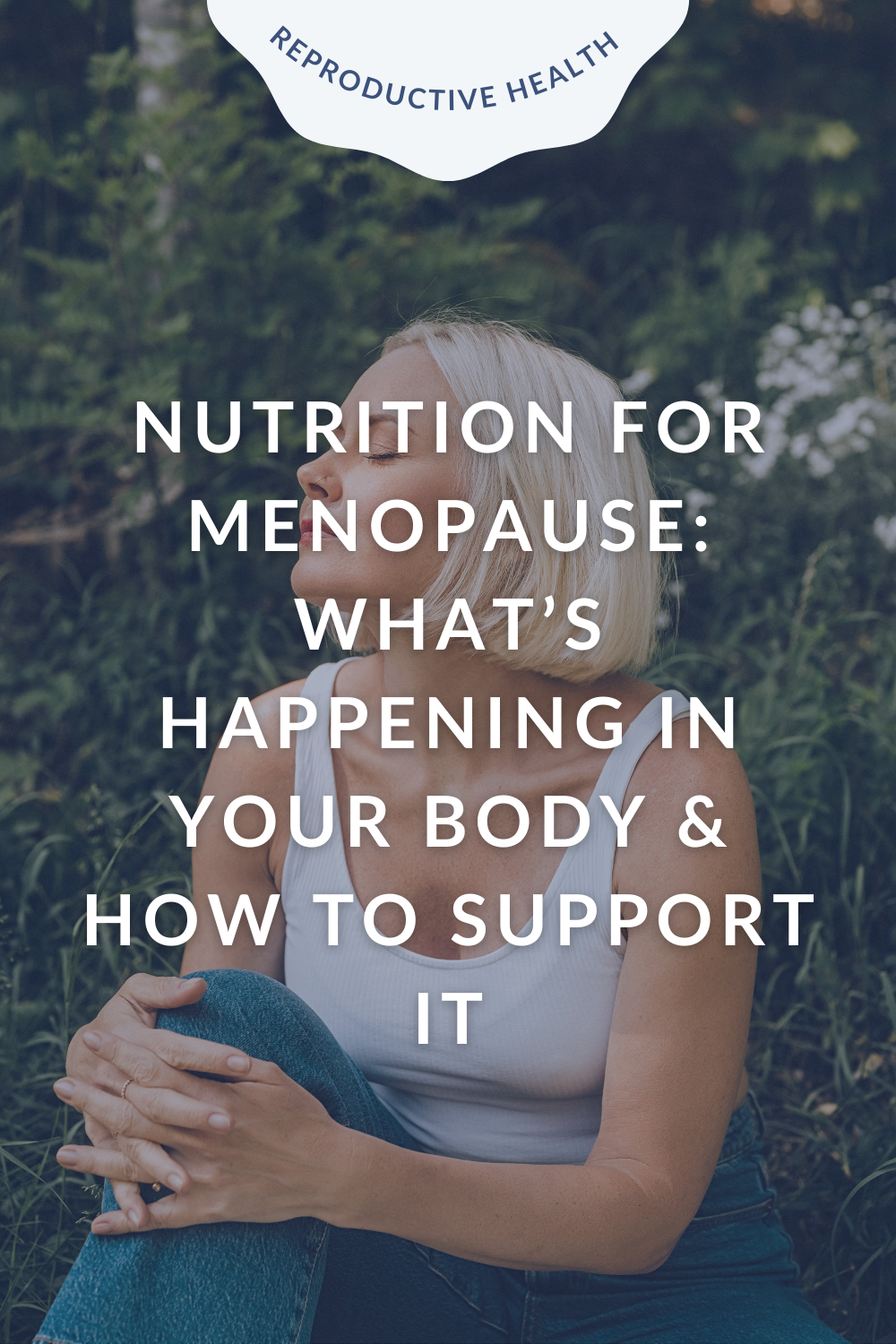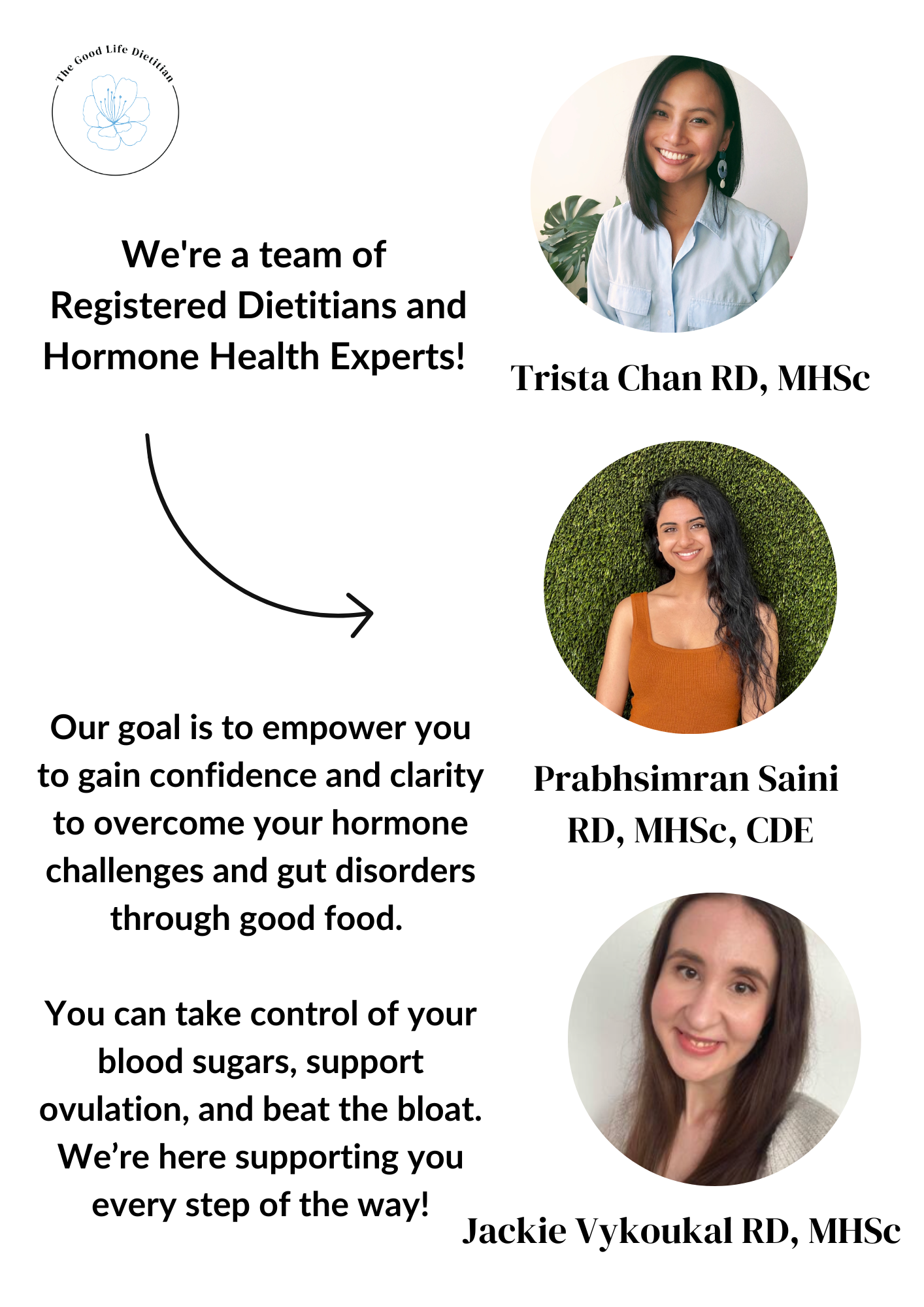5 Hormone-Friendly, Stress-Free Tips for Holiday Eating
The holiday season is a time of joy, connection, and rich, meaningful food - but it can also surface unexpected challenges for anyone trying to balance hormone health and steady energy.
Between late nights, travel, family dynamics, and the cultural spotlight on food and body, it’s common for old habits, insecurities, or stress responses to resurface. Suddenly, blood sugar swings, cravings, body image concerns, and hormone disruptions like elevated cortisol or insulin sensitivity can feel unavoidable.
That said, to be clear, you’re under no obligation to “eat well” if you don’t feel like it or can’t. Holidays can, and should, be fluid. If you do choose to focus on gentle nutrition this season, here’s how
1. Start Your Day with Intention and Breakfast
Before the holiday rush begins, take a quiet moment for yourself. Spend a few minutes setting an intention or visualizing how you want to feel around food that day: calm, confident, and satisfied instead of stressed or out of control.
Then, try to eat breakfast. A balanced meal with protein, fibre and fats. Think “Nutrition by addition.” Skipping breakfast or relying on coffee alone can set you up for late-day cravings and overeating.
2. Keep Meals Consistent
Hormones love rhythm. Aim to eat every 3-5 hours, even when schedules shift. This steady timing prevents the “low-high” blood sugar roller coaster that drives cravings and fatigue.
3. Build a Balanced Meal
Whether you’re at a family buffet or an office party, use a simple 3-part plate model:
½ vegetables or fibre-rich sides (roasted Brussels sprouts, leafy salads, carrots)
¼ protein (turkey, fish, tofu, lentils)
¼ carbohydrates (potatoes, bread, rice)
This ratio supports steady blood sugar and satiety, and helps to increase micronutrient intake.
Remember: all foods fit. It’s the balance of protein, fat, and fibre - not perfection - that matters most.
4. Tune Into Your Body Cues
Many of us eat until the food is gone - or keep going because others are still eating. But tuning into your body’s signals is key. Not everyone can easily sense hunger or fullness, and that’s okay.
If internal cues are hard to read - whether due to neurodivergence, medication, habit, or stress - you can still build awareness in gentle ways:
Check in with yourself mid-meal: Even a quick pause to notice how your body feels can help. Ask, “How does the food taste? Am I still hungry, or am I eating because it’s there, or because of stress or habit?”
Focus on comfort, not restriction: Honoring fullness doesn’t mean limiting yourself; it means noticing what feels satisfying and gentle for your body.
Let go of perfection: If you overeat during the holidays, it’s not a setback. One meal won’t undo your progress.
The goal isn’t to “eat perfectly” - it’s to reconnect with your body in ways that feel safe, flexible, and nourishing, on your own terms.
5. Stay Hydrated & Move Gently
Holiday drinks like coffee, wine, hot chocolate, are part of the fun, but they can easily crowd out water. Try to sip water or herbal teas (peppermint is especially soothing for digestion) throughout the day, and consider alternating alcoholic drinks with water.
Remember: small, simple habits like this don’t have to feel rigid - they’re just tools to help your body feel a little lighter and more comfortable while you enjoy the season.
Reframe the New Year Mindset
As someone who loves seasonal reflection, I say this with intention: instead of treating January as a “reset” or a strict starting line, see health as fluid and ongoing. There’s no perfect date to start, and no single meal or day can define your progress.
Every small, consistent choice adds up over time. Focusing on steady habits supports lasting hormone balance, energy, and wellbeing far beyond the holidays, while still leaving space for joy, celebration, and flexibility along the way.
That said - if you don’t make a particular choice, that’s okay too. One missed meal, skipped walk, or indulgent day is just one small moment in a long, full life.
Health isn’t about perfection - it’s about the overall patterns, the care you show yourself over time, and the space you create for both nourishment and enjoyment.
Key Takeaways
Begin each day with a calming intention and balanced breakfast.
Eat every 3-5 hours to steady blood sugar and reduce cravings.
Use a ½ veggie, ¼ protein, ¼ carb plate model for festive meals.
Honor body cues and check in with yourself.
Hydrate and include gentle movement to support digestion.
These habits help keep cortisol, insulin, and other key hormones in check - so you can enjoy the season with energy and peace of mind. Happy holidays!
Hi! I’m Trista
A Registered Dietitian and reproductive health expert. I’m here to help you gain confidence to overcome your Polycystic Ovary Syndrome and digestive health woes, while bettering your relationship with food.
CATEGORIES
Ready to find real hormonal relief with your PCOS?
Download the PCOS Symptom Tracker & Labs Checklist to track your progress and see how your meals affect your health. It’s an easy way to align your food choices with your body’s needs and feel your best!













